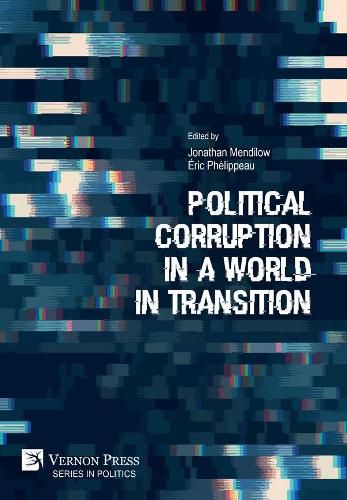Readings Newsletter
Become a Readings Member to make your shopping experience even easier.
Sign in or sign up for free!
You’re not far away from qualifying for FREE standard shipping within Australia
You’ve qualified for FREE standard shipping within Australia
The cart is loading…






This title is printed to order. This book may have been self-published. If so, we cannot guarantee the quality of the content. In the main most books will have gone through the editing process however some may not. We therefore suggest that you be aware of this before ordering this book. If in doubt check either the author or publisher’s details as we are unable to accept any returns unless they are faulty. Please contact us if you have any questions.
This book argues that the mainstream definitions of corruption, and the key expectations they embed concerning the relationship between corruption, democracy, and the process of democratization, require reexamination. Even critics who did not consider stable institutions and legal clarity of veteran democracies as a cure-all, assumed that the process of widening the influence on government decision making and implementation allows non-elites to defend their interests, define the acceptable sources and uses of wealth, and demand government accountability. This had proved correct, especially insofar as ‘petty corruption’ is involved. But the assumption that corruption necessarily involves the evasion of democratic principles and a ‘market approach’ in which the corrupt seek to maximize profit does not exhaust the possible incentives for corruption, the types of behaviors involved (for obvious reasons, the tendency in the literature is to focus on bribery), or the range of situations that ‘permit’ corruption in democracies. In the effort to identify some of the problems that require recognition, and to offer a more exhaustive alternative, the chapters in this book focus on corruption in democratic settings (including NGOs and the United Nations which were largely so far ignored), while focusing mainly on behaviors other than bribery.
$9.00 standard shipping within Australia
FREE standard shipping within Australia for orders over $100.00
Express & International shipping calculated at checkout
This title is printed to order. This book may have been self-published. If so, we cannot guarantee the quality of the content. In the main most books will have gone through the editing process however some may not. We therefore suggest that you be aware of this before ordering this book. If in doubt check either the author or publisher’s details as we are unable to accept any returns unless they are faulty. Please contact us if you have any questions.
This book argues that the mainstream definitions of corruption, and the key expectations they embed concerning the relationship between corruption, democracy, and the process of democratization, require reexamination. Even critics who did not consider stable institutions and legal clarity of veteran democracies as a cure-all, assumed that the process of widening the influence on government decision making and implementation allows non-elites to defend their interests, define the acceptable sources and uses of wealth, and demand government accountability. This had proved correct, especially insofar as ‘petty corruption’ is involved. But the assumption that corruption necessarily involves the evasion of democratic principles and a ‘market approach’ in which the corrupt seek to maximize profit does not exhaust the possible incentives for corruption, the types of behaviors involved (for obvious reasons, the tendency in the literature is to focus on bribery), or the range of situations that ‘permit’ corruption in democracies. In the effort to identify some of the problems that require recognition, and to offer a more exhaustive alternative, the chapters in this book focus on corruption in democratic settings (including NGOs and the United Nations which were largely so far ignored), while focusing mainly on behaviors other than bribery.